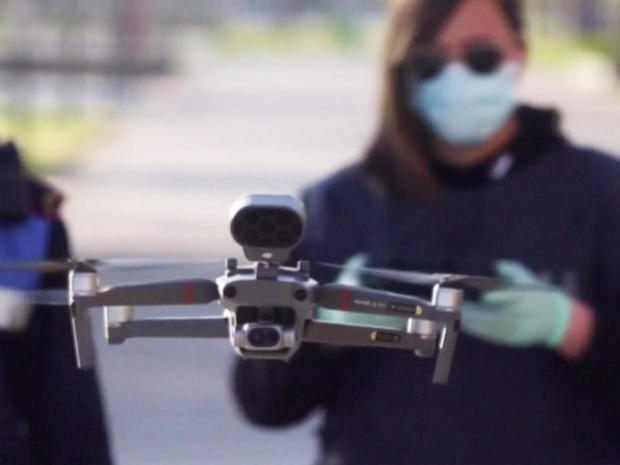Ideological Criticism: Drones During the Pandemic
Ideological Criticism
Ideological Criticism: Drones During the Pandemic
Link: https://www.cbsnews.com/news/coronavirus-drones-slow-spread-covid-19/
1. Values, Preferences, and Naming
- This article examines how drones were used early in the pandemic by public health officials and police departments to manage social distancing and measure body temperature. It even originally began with normal people who are drone enthusiasts, such as someone named Xavier Arthur in Queens, New York who attempted to enforce social distancing out of a frustration with people not following the guidelines.
- Thus, one value that is articulated is following public health guidelines for the sake of the public's safety.
- The very topic of this article demonstrates a value of using technology such as drones for the common good, or in this case, public health during a pandemic that has had fatal effects.
- These particular values reflect a preference for public safety and health, even when considering the risks of identity security that drones may pose.
- On the other side of this argument, the article discusses people who are worried about identity security risks that are possible with the presence of drones being used for public health. People concerned for identity security are worried that abilities like facial recognition or thermal imaging cameras, which can be risks for identity security. Those who are concerned about this have preferences for personal security and privacy, and are worried about the possibilities of people abusing the possibilities of technology such as drones.
- These people call themselves "privacy advocates" which is an interesting name when comparing someone like Xavier Arthur who called himself a part of the "Anti-COVID 19 Task Force". These particular names are interesting when considering the hidden ideologies behind drones being used during the pandemic and how these names associate different preferences relating to health and identity security.
2. People Represented When Considering Drones
- When considering how drones are used in the particular context of the pandemic, public health organizations and police departments are collaborating with technology companies that create drones, and are applying them to the particular purpose of public health practices like social distancing.
- In this case, the main people making decisions are powerful institutions and companies, and sometimes it is without the consent of normal citizens. This becomes an interesting dialogue when considering how some citizens may accept this use of technology for the sake of public health, whereas others may be worried about identity security and the possibilities of technology being abused.
- Though, there are also normal citizens, such as Arthur who the article includes, who are using their personal technology for the purpose of public health independently. Thus, while it may seem on a more holistic level that the "people" speaking are organizations and systems, and the people not speaking are normal citizens, there are some cases where normal people are engaging in drone use independently.
- The examination of who has a say or is impacted by drone usage during the pandemic is important when considering how research early in the pandemic provided evidence that older people and people of color were deeply impacted by the pandemic.
3. My Perspective on Ideological Criticism
- I think Ideological Criticism is a unique form of rhetorical criticism because it is able to make visible ideologies that are sometimes hidden, even though are very pervasive in terms of how they determine communication and behavior.
- While i find values and preferences to be common elements that are thought of when examining ideology, I appreciated Ideological Criticism's focus on the implications of naming and who is controlling ideologies compared to whose voices may be silenced.
- I think that since Ideological Criticism focuses on making visible ideologies that may be hidden, it may be more difficult to analyze than other forms of rhetorical criticism because the messages and implications are not as explicit.

Comments
Post a Comment